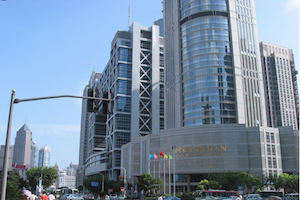The Tashkent Conference on Afghanistan: Too Much Diplomacy, Too Little Solution
By Farkhod Tolipov
May 29, 2018, the CACI Analyst
On March 26-27, 2018, the unprecedented international conference on Afghanistan, “Peace process, security cooperation and regional interactions,” took place in Uzbekistan’s capital Tashkent. Diplomatic representatives of 21 states, the UN and the EU participated in the conference and signed its final Tashkent Declaration. The event signaled a transformation of Tashkent’s previous positions on Afghanistan, from past initiatives in the form of narrow formula-like approaches to a system-oriented strategy. However, the Tashkent Declaration and speeches given at the conference reveal that the approach contains too much diplomacy and too little solution, especially given the growing terrorism threat in the country.
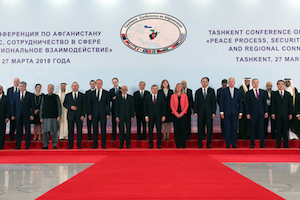
The Bolshevik Revolution Centennial and the Disintegration of the Soviet Space
By Dmitry Shlapentokh
May 25, 2018, the CACI Analyst
The centennial of the Bolshevik Revolution in November 2017 was a strange jubilee. Despite the revolution’s central importance in world history and its global importance, the centennial received scant attention in Russia. Most other post-Soviet countries plainly ignored it. The marginalization of the Revolution went along with a sharp decline in the popularity of Eurasianism, whose proponents emphasized the “symbiotic” or organic relationship between Russians and other ethnicities of the former USSR. Eurasianism also emphasized a Russia-centered historical narrative of the Soviet Union and the Russian empire. The decline of common historical space reflects a discursive and geopolitical vacuum, which the rising China will most likely fill.
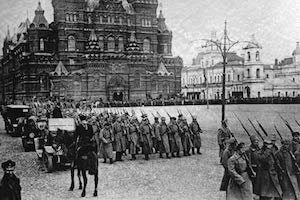
China's Belt and Road Initiative: Relieving Landlocked Central Asia
By Avinoam Idan
May 1, 2018, the CACI Analyst
One of the most significant factors impacting Central Asia is its landlocked geography. This situation affects almost every sphere of life—foreign policy, national security and economy. However, China’s BRI project may alter the impact of China on the region. China’s BRI can transform Central Asia from its landlocked state to a transit region between Asia and Europe. Essentially, China is unlocking landlocked Central Asia. Recently, there have been two significant developments: the increase in volume of freight passing through the “dry port” of Khorgos, (in Kazakhstan), and the acceleration of the implementation of the China-Pakistan corridor leading to the Indian Ocean. Each of these developments plays a part in the Chinese initiative and in its impact on Central Asia. The BRI is, thus, the trigger for the geopolitical earthquake in the region.
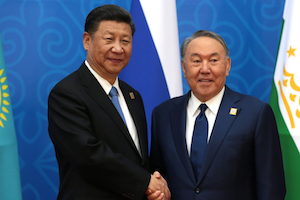
Central Asia After Astana: From Integration to Cooperation
By Slavomír Horák
April 30, 2018, the CACI Analyst
After the March 15 meeting of Central Asian leaders in Astana, analyses, news and reports increasingly use words such as “integration” or “new beginning” to describe political developments in Central Asia. Some Russian media have speculated in the beginning of the next phase of separation from Moscow. However, the “consultative meeting” in Astana should be understood in a completely different manner. The word “integration” reminds us of previous, less successful attempts at regional cooperation in Central Eurasia and so far, no comprehensive integrational concept has materialized. Yet, the Astana meeting was the first of its kind in many years and President Nazarbaev, summing up the results, underlined its informal character and even compared the format to the Visegrad group in Central Europe.
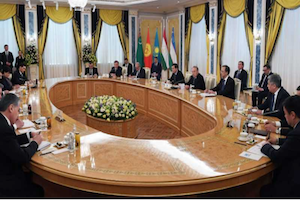
China's Policy Bank Investment Profits from Uzbekistan's Monetary Policy Reform
By Tristan Kenderdine
April 16, 2018, the CACI Analyst
Following high-profile visits by Premier Li Keqiang in 2015 and Xi Jinping in 2016, China’s is domestically devolving its trade and industrial relationship with Uzbekistan to provincial and prefectural levels of government. However, financing for China’s investment in Uzbekistan remains either directly invested or indirectly coordinated by one of China’s three central policy banks, Export-Import Bank of China, China Development Bank, and the Agricultural Development Bank of China. Since 2014, the Exim Bank has committed to fund Belt and Road projects worth around US$ 120 billion, which corresponds to nearly a full year’s GDP for Uzbekistan. These quasi-sovereign wealth funds certainly pose a systemic debt risk, but are not necessarily a debt-trap.
